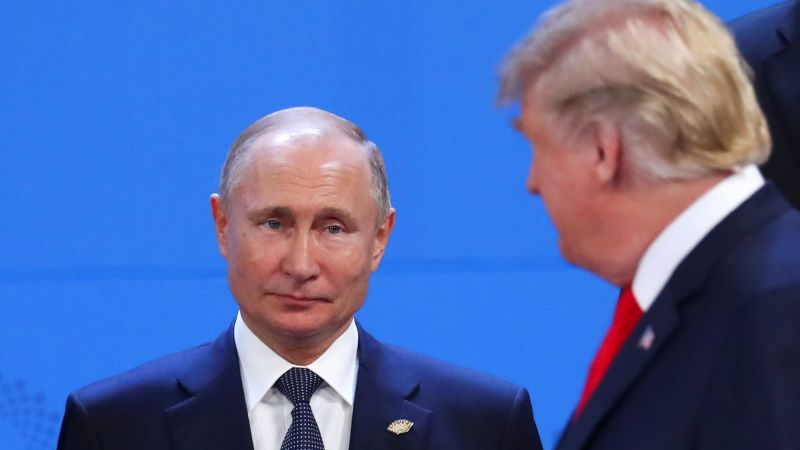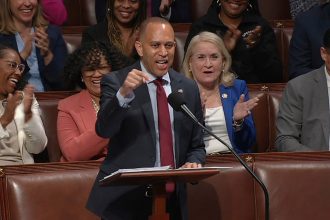A newly declassified memo from the CIA, released on Wednesday, questions the conclusions drawn by intelligence agencies regarding Russia’s interference in the 2016 presidential election, which aimed to bolster Republican candidate Donald Trump. The document, commissioned by CIA Director John Ratcliffe, a known Trump ally who previously opposed the Russia investigation as a congressman, criticizes a 2017 intelligence assessment asserting that Russian President Vladimir Putin orchestrated a covert campaign to aid Trump’s election efforts.
Notably, the memo does not address several independent investigations that have affirmed the original findings, including a report from the Republican-led Senate Intelligence Committee in 2020.
This eight-page document forms part of a broader initiative by Trump and his close associates, who now hold significant governmental positions, to re-examine the long-closed Russia investigation that led to criminal charges and deeply influenced Trump’s presidency. This scrutiny stems from ongoing grievances and the former president’s longstanding distrust of the intelligence community.
Ratcliffe’s report represents his continued effort to question the methodologies and decisions made by intelligence agencies during the Russia investigation. As a vocal supporter of Trump in Congress, Ratcliffe aggressively interrogated former special counsel Robert Mueller during his 2019 testimony on Russian election meddling. He has since leveraged his leadership role as the director of national intelligence to declassify Russian intelligence that suggested detrimental information about Democrats from the 2016 election, even acknowledging the possibility of its inaccuracies.
The review, ordered by Ratcliffe in May as a “lessons-learned” exercise, aimed to evaluate the intelligence community’s techniques in crafting its 2017 assessment on Russian interference, specifically the assertion that Putin intended to help Trump win. In doing so, the report highlighted various “anomalies,” including a hurried timeline and reliance on unverified data, such as Democratic-funded opposition research about Trump’s Russia ties sourced from former British intelligence agent Christopher Steele.
The memo particularly critiques the decision to incorporate a two-page summary of the Steele dossier, which contained unverified allegations regarding Trump’s connections to Russia, in an annex of the intelligence assessment. It stated that this inclusion, advocated by the FBI, “implicitly elevated unsubstantiated claims to the status of credible supporting evidence, compromising the analytical integrity of the judgment.”
Despite emphasizing a “politically charged environment” that led to unusual analytical practices, Ratcliffe’s agency does not contradict any existing intelligence findings. Representative John Ratcliffe (R-TX) had previously questioned Mueller during a House Judiciary Committee session on July 24, 2019, regarding Russian election interference.
Previous intelligence reports and the August 2020 report by the Senate Intelligence Committee, once chaired by current Trump Secretary of State Marco Rubio, have outlined Russia’s support for Trump. Mueller’s 2019 report also confirmed that Russia intervened on Trump’s behalf and highlighted that the Trump campaign welcomed this assistance, although it did not find sufficient evidence for a criminal conspiracy.
“This report doesn’t change any of the underlying evidence — in fact it doesn’t even address any of that evidence,” commented Brian Taylor, a Russia expert and director at the Moynihan Institute of Global Affairs at Syracuse University. He suggested that the memo might be intended to bolster Trump’s narrative that investigations into his Russia connections are merely a Democratic fabrication.
“Good intelligence analysts will tell you their job is to speak truth to power,” Taylor noted. “If they tell the leader what he wants to hear, you often get flawed intelligence.”
While intelligence agencies typically conduct after-action reports to glean insights from past investigations, the public declassification and release of such evaluations is quite rare. Ratcliffe has expressed a desire to make public various documents on contentious issues and has already declassified materials related to the assassinations of Presidents John and Robert F. Kennedy, as well as the origins of COVID-19.










